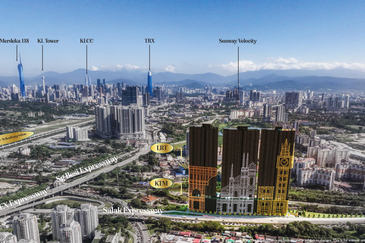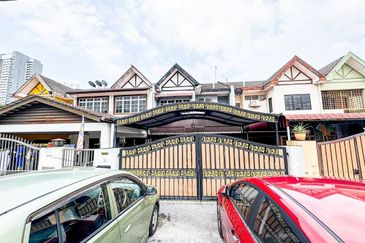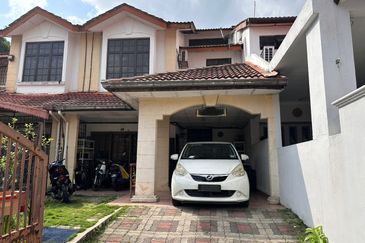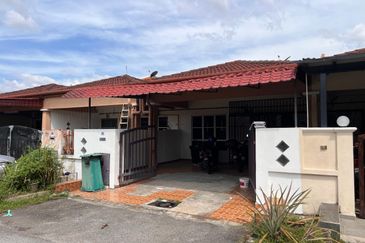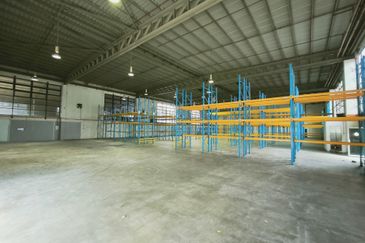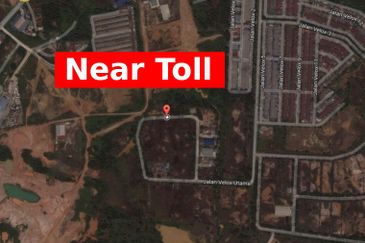More than three months in, what has the government done right so far? What has it missed? More importantly, how should it move forward?
Focusing on the housing and property sector, EdgeProp.my garnered some feedback and suggestions from the ground. Representing the views of economists, property developers, consumers, real estate consultants and other stakeholders in the industry, these 13 spokespersons from 12 organisations had also taken part in a poll to rate the government’s performance in its first 100 days with regards to housing and property-related issues.
Datuk Jeffrey Ng
Chairman, Rehda Institute
“Based on EdgeProp.my’s survey, the new government’s performance in the past three months is at the lower end (too early to tell).
However, taking into account that the issue of affordability in the housing sector is very complex, it would be unfair to insist that the new government must achieve their promises within the first 100 days.
More importantly, various announcements made by the new government are definitely steps in the right direction, especially to effectively overhaul the affordable housing delivery system. It is better not to rush into any new policies and regulations if these are not well thought through. Any shortfalls can create future problems and confusion for all stakeholders when implementing them.
It is no big deal if they pass the 100 days, so long as the new policies and regulations are implemented effectively and equitably. The devil is always in the implementation of structural changes.
However, there are some laudable moves. For instance, the announcement to set up the National Affordable Housing Council, as well as to gazette the Kuala Lumpur City Plan as soon as possible, are definitely very positive.
Of course, there are many issues which are currently being looked into by the new government that may be “work in progress”, or pending announcements in due course, which we are not privy to.
Overall, the new government seems to be looking into all the right areas to address the problems unresolved by the previous government.”
Suggestions: “There are two agendas, which might have been overlooked, that should be addressed by the new government; regular surveys to keep track of affordable housing demand and identify potential land banks for affordable housing development.
There is a need to conduct regular surveys and periodic national census to gauge the demand side of affordable housing requirements, whether such surveys or census are on the current and future demand of affordable housing, or house ownership eligibility based on household income, or the type of housing products required, or suitability of locations.
The Ministry of Housing and Local Government (KPKT) should work with other ministries and government agencies to ascertain the supply side of affordable housing. This is to ensure that the setting up of the National Affordable Housing Council would be in the best position to register all genuine eligible affordable homebuyers from the M40 and B40 groups, and matching them to available supply in all locations in the different states of the country.
Meanwhile, it is also crucial that the new government identifies and takes stock of all available existing potential land banks, which are owned by the federal government, state governments, public sector agencies, and GLCs, which are suitable for affordable housing development.
The new government can take a holistic approach to formulate future supply of affordable homes on a sustainable basis, in the form of townships or Transit-Oriented-Developments for affordable housing eco-system suitability.
Another suggestion is for the new government to work hand-in-hand with state governments, NGOs, local authorities, private sectors and all relevant stakeholders in the affordable housing industry in order to deliver the manifesto as a long-term objective.”
Ihsan Zainal Mokhtar
President, Malaysian Institute of Planners
“I believe that it is too early to assess the new government’s actions and policy on the housing and property sector, as it may need a longer period to be able to do so.
“[The scores given] do not reflect a failure due to a lack of efforts, but because it is difficult to measure the long term efforts required in tackling issues related to the housing and property sector.
Over-regulation is always a worry and I think that the new ministers should engage more with all stakeholders, including the professionals. It would also be wise to talk to the previous government and ministers, as the current cabinet and related ministries are very new.
It is also wise to look at concepts such as rent-to-own, when it comes to home ownership. It has to be properly discussed, especially with the public. Another point I wish to raise, is that the Kuala Lumpur City Plan 2020 should have proper scrutiny before the gazettement takes place.”
Foo Gee Jen
Immediate past president, Association of Valuers, Property Managers, Estate Agents and Property Consultants in the Private Sector Malaysia
“Overall, there is limited time for the government to make meaningful progress in the first 100 days of administration. However, they have displayed good understanding and sound judgement about the housing issues in Malaysia. The government seems to have good understanding about the challenges and reality of the property sector, especially when it comes to affordable housing. Thus far, I would regard their identification of the issues as relevant and timely.
The government has done right in recognising that the affordable housing policy needs to be centralised for efficient resource allocation and effective delivery; to suggest and to determine affordability at state-level; looking to rectify the qualitative aspects of housing in the National Housing Policy 2.0 (NHP 2.0) such as future building concept, size and amenities to address mismatch in the production of affordable housing; setting up a centralised and reliable data repository to keep track of current and future developments; and drafting the commercial development act which would promote healthy practices and safeguard the interest of all parties.
In months to come, anticipation will be on the government’s pledges to establish the National Affordable Housing Council and the release of the NHP 2.0 which is expected to come up with a renewed assessment of housing matters. In July, KPKT was reported to be in talks with NAPIC (the National Property Information Centre) to sort out arrangements for setting up a data repository — this is a move that many have been calling for.
It is heartening to know that KPKT is actively engaging with various parties from the real estate, financial and public sectors to gather opinions and devise comprehensive solutions. A number of initiatives have been suggested by the KPKT itself and we shall wait and see how they turn out to be. The ensuing execution and enforcement mechanism is as paramount as the implementation.
Nonetheless, considering this is only just past the third month of the formation of the new government, the Cabinet formation and the resumption of Parliament seating, the real performance can only be determined when the proposals are administered as policies, bearing in mind that there are tedious due processes that need to be carried out (such as legislation amendments).
While promoting home-ownership is desirable, financial stability has to be preserved as well. The existing EPF (Employees Provident Fund) withdrawal permission for home financing is welcomed as this essentially means converting savings in the form of cash to asset.
Allowing more lenient loan approvals however, is more intricate. Overly loose loan requirements could result in financial institutions underwriting more risks and the moral hazard of recipients taking on excessive financial commitment beyond their capacity.
It is also equally important to promote a property market with healthy and sustainable growth. Erratic policy changes, such as the freezing of development approval, should be avoided as shocks may dampen investors’ confidence and trigger adverse reactions. Measures that are being introduced must be deliberate and well-articulated, backed by careful assessment of possible outcomes.
To achieve targeted delivery, fair distribution, and transparent allocation of affordable houses, the background of the applicants needs to be ascertained. This is to ensure the applicants’ eligibility criteria are fulfilled, and prevent multiple-ownership of affordable houses. The centralisation of affordable housing schemes under one agency should make this possible.
The government should not be the provider of affordable housing in the long-term. This is because it would be financially unsustainable to continuously subsidise houses, given that land and input costs are ever-increasing. Looking at the aspect of basic needs, the priority should be in ensuring every Malaysian has a roof over their heads, it may be rented or owned. The government should step up provision of public rental housing to serve as interim accommodation that has low barrier of access to all.
Rental income gives liquidity and steadier flow of revenue to the government, compared to developing affordable houses for sale at a subsidised price. It has to be said however, that improvements on rental market and practices in Malaysia (e.g. tenant and landlord profiles repository, tribunal to solve dispute, comprehensive tenancy act) are needed for the rental market to be well-received by the public.
At present, the affordable housing segment is by and large a supplementary product in the open market where the parties involved and transaction mechanisms are not exclusive. Therefore, it is unlikely that house prices in the open market can be controlled since market forces cannot be contained. As such, keeping house prices at affordable levels would be challenging. The ultimate solution to enhancing affordability of Malaysians still lie in improving the income level and purchasing power.
While a number of mega projects have been scrapped or put on hold to restore fiscal discipline, the government needs to continue looking into improving public transport as connectivity could essentially reduce the cost of living, raise productivity, unlock new development areas, and extend the reach of residential areas. This would then ease the upward pressure on price caused by over-demand of residential properties in a few limited locations. The Ministry of Transport’s plan to develop affordable housing projects on Railway Assets Corporation’s land is very much welcomed.
The present discourses are focused on setting up the right system. There shall be more attention on optimising the development costs after this, such as incentives for IBS (Industrialised Building System) and reducing compliance costs for developers.”
Michael Kong
President, Association of Valuers, Property Managers, Estate Agents and Property Consultants in the Private Sector Malaysia
“In general, the current government is on the right track. Structural changes are difficult and have to be carried out carefully and slowly, step-by-step, minding every little matter and detail to achieve the desired objectives. Several major issues have to be carefully studied and researched. A properly planned programme is better than a rushed one.
The government has done right in improving transparency in the government’s procurement and project tender processes. Transparency enables the people or responsible parties to ensure that things are done in the right way, preventing hidden agendas and personal benefits.
Engagement with stakeholders is an important aspect of good governance and policy making. The new Pakatan Harapan government is already engaging the people for consultations and feedback to understand what went wrong and what is better, for the sake of nation building in general and real estate development in particular.
The current emphasis of the new Pakatan Harapan government in relation to real estate is primarily focused on the M40 and B40. However, real estate policies should be looked at holistically, involving the T20 group as well as foreign investors to ensure a vibrant and sustainable real estate market in the long run. There shouldn’t be ‘knee jerk’ policies that will spook foreign investors and disrupt the equilibrium of the market.”
Suggestions: “To improve and achieve targets, the government should continue to engage and have more dialogues with NGOs, professional bodies, and developers to understand the underlying problems and issues with regards to the real estate market.
A holistic plan should be carefully crafted and formed to deliver benefits to the people in each category from the low, middle, and high income groups.
Although a part of the whole community needs help and aid from the government, surely the other parts of the community make up the market and the country as a whole.”
Datuk M Ali
Deputy chairperson, Save KL Coalition
“In the first 100 days after Pakatan Harapan took over Putrajaya, they have been busy clearing up the mess made by the previous government and have to sort out some financial challenges at the moment. This is why they have not been able to move forward in executing the promises they had made before the election fully. Their focus is currently pretty much on fire-fighting.
My prediction is that the execution of manifestos will only happen six to 12 months later. The first 100 days is a tough period, given the current challenges that the new government is facing.
It is also a good lesson to the new government to not over-promise, before actually understanding the situation. Having said that, many advanced countries face similar problems during transition periods despite being more transparent.
I will not judge what the new government has done right or wrong in just a hundred days. However, I think the change (in government) is the most important thing achieved. Other than that, there are still a lot of questions to be answered.
I think the most important thing is to set up an effective, functioning, transparent, and open minded government. The government needs to go to the right place to do the right thing. The chaos in the beginning is acceptable. The people will understand that you (the government) need time and support to get the engine started and warm up, but it shouldn’t take too long because we already have the full cabinet now.”
Eric Lim
President, Malaysian Institute of Estate Agents
“Basically, most [of the policies] are still under planning and nothing concrete has been executed [during the 100 days]. However, the government has done right in making the effort to engage with Bank Negara Malaysia, commercial banks and other stakeholders to understand the issue of property lending, while putting all the agencies for creating affordable housing under one single entity.
But they have somehow overlooked the M40 category while putting too much emphasis on B40. The challenge faced by the M40 in urban areas is something the government needs to look into. I hope the government can have more engagement with the relevant bodies associated with the target group. These are the parties that understand the underlying issues faced by the general market.”

Datuk Soam Heng Choon
President, Real Estate and Housing Developers’ Association
“Since the new government came into power in May this year, and the Cabinet ministers named later on, several measures have been announced or proposed with the purpose of elevating the nation’s growth, economy and stability.
However, as it has only been slightly more than three months since the new government took over, it would be difficult to make comments on their performance to date, at this point of time.
Nevertheless, we are happy to note that they have taken into consideration some of the proposals that Rehda had earlier put forward to the government.
The announcement by the National Housing Department to establish a singular entity to oversee and coordinate the development of social and affordable housing in the country will certainly go a long way towards achieving the homeownership agenda, especially for those in the B40 and M40 categories.
The announcement of the establishment of a central agency for data collection is also much welcomed by developers. The availability of such data will enable developers to make informed decisions in their purchasing of land, the type of properties to build, as well as pricing, so as to deliver what the consumers are looking for. Similarly, the availability of such data will also benefit purchasers.
Other than that, the announcement by the KPKT Minister on the government’s plan to introduce a new housing loan scheme to help the M40 and B40 household groups to buy houses will hopefully help to solve the end-financing issues, especially among this specific target group.
We also look forward to the discussion between the Ministry and Bank Negara Malaysia, in finding amicable solutions to the end-financing problem.
The government has only been in power for several months and should be given time to look into the many issues faced by the various industries.
For the property industry, we hope the government will continue to introduce measures and initiatives towards the betterment of the industry.”
Suggestions: “We hope the government will give priority to:
• More measures to facilitate home acquisitions among the rakyat, especially for first-time house buyers. First-time home buyers are mostly young executives with minimal funding and savings, and face many issues when purchasing a house, such as the inability to pay the 10% down payment.
• Addressing issues of cross subsidisation in the country. Cross subsidies for low-cost units are shouldered by buyers of other segments within a project, which causes property prices of other segments to increase. Rectifying the issue would be able to tackle the prices of properties in the other segments.
• Active measures to reduce the cost of doing business. Developers are currently asked to pay/provide for land conversion premium, planning requirements for facilities and social amenities, construction levy, foreign labour levy, compliance of construction site requirements and capital contribution charges (water, sewerage,
TNB), among many others.
• Measures to assist in the clearing of unsold stock, as well as release of unsold bumiputera units so that capital is not tied up and can be utilised.
We hope the government will continue engaging with industry stakeholders and Rehda stands committed to continue our cooperation with the government, government agencies and other industry players to uplift the strengths of our economy and ensure that the prosperity of the nation as a whole is preserved.”
Ezumi Harzani Ismail President
Malaysian Institute of Architects
“The new government is working hard to handle the issue of affordable housing. However, the same administrative officers and staff from the previous government remain inefficient. There is no sign of improvement at the administrative and working level. Business as usual, they remain pessimistic, without motivation to improve the situation. Change in leadership isn’t enough. It requires strong leadership to change the civil servants too.
From our experience in dealing with passive and poor performance among KPKT staff and officers, many initiatives proposed by the industry and business communities were not implemented or even adequately considered. The issues on partial certificate of completion and compliance (CCC) for Vacant Possession are still left unattended and without proper solution. They don’t even try to understand the meaning of Partial CCC as stipulated in the Uniform Building By-Laws.
The ministry has also not found the core reason for the imbalance in the affordable housing segment. KPKT should gather as much information from the construction industry players – developers, architects, engineers, contractors and banks to find out.
If they go to the grassroots, they would know that compliance costs for construction is the culprit. There are too many unnecessary regulations imposed by regulators that contributed to additional cost of developments.
At present there are many issues tied to the inefficiencies of local governments that are actually contributing to the high cost of development. For example, some local authorities (PBT) have yet to gazette their local plans. This has led to landowners having to do a search on adjacent parcels of land to get their neighbour’s planning approval (Neighbour’s Notice/Notis Berjiran) for a proposed development. For each search, the PBT collects money from the landowner. Is it any wonder why PBTs are dragging their feet to gazette local plans?
The government has done right in terms of addressing the shortage of affordable housing, and they have sought the advice of Bank Negara regarding the financial loan structure that can be offered to the rakyat.
They have done the right thing to centralise the affordable housing development agencies such as PR1MA, PPA1M, PPRT and others. However, the new central agency has yet to be functional.”
Suggestions: “They need to relook at the people advising the government in housing matters. The same officers advised and failed the previous government. It is time for the new government to get a new set of officers who understand the industry and public issues, and make necessary changes to the institution.
I am very concerned with the announcement made by the Housing Ministry recently about loopholes in the CCC system and their intention to introduce a new Act to regulate commercial developments. Have they studied and tried to understand the system first before making changes to the regulations?
Establish more programmes and platforms for engagement with professional bodies, business organisations and public /communities in order to receive the true and proper feedback of what is happening on the ground. Don’t just listen to the same officers.
We need to help the new government to understand the real issues and resolve it objectively. The present government officers who have served under the previous government still behave just like before, dragging their feet and refusing to change. They have little understanding of industry matters and keep on imposing new barriers to the building and construction industry, thus impeding its growth.
They must be replaced with a new generation of people who are more qualified, and eager to change, and make things better for the nation.”
Tan Sri Teo Chiang Kok
President, Building Management Association of Malaysia
“The new government’s enthusiasm is remarkable and they have done right in addressing the obstacles and working on possible solutions. However, the government needs more consultations with the industry, to get practical suggestions that will lift the industry out of the present challenging environment and reduce the cost of development.
There is concentrated focus to solve the affordability gap, but there needs to be a more urgent focus on solving the current overhang in unsold properties. The gap in affordability is the result of callous impositions that led to the rising cost of development. Hence, the government needs to review all such unfair impositions, and reduce unnecessary and unfair compliance costs while de-emphasising house ownership, and introduce more rental housing for those who are unable to afford a house at the moment.”

Carmelo Ferlito
Senior Fellow, Institute for Democracy and Economic Affairs
“It seems that the government took the housing issue very seriously, but that does not necessarily mean that it acted in the right way. There are two emphasis points, which pose a great concern — introducing favourable loan conditions for the B40 and M40, and decreasing the number of agencies involved in the affordable housing market (from 20 to 6).
First of all, the general premise to our comments is that 100 days for plans regarding the housing market is really a very limited period of time. Therefore, sound judgement would be possible in six months’ time. Nevertheless, it is positive that the government takes great concern with the issue and wants to be operational in a fast way, to announce a new housing loan plan by September 2018.
However, relaxed loans might prolong the period of high prices, delaying an unavoidable crisis (the only real way to get prices moving downwards), and increasing the financial exposure of households in general.
It is curious to see that Bank Negara was not supportive of such a move in the past, while it now seems more open to ease the credit conditions for the housing market.
Reducing the number of agencies involved in the affordable housing market will not really solve the problem, as long as the government is not able to gather the necessary information for sound planning, because information can be collected only via dispersed interaction in the market.
Instead, a gradual step back by the government from direct intervention is required, in order to attract private investors towards the affordable housing market, where they are presently crowded out by government action.
This would help the necessary reshaping of the capital structure, from the high-end sector towards the affordable housing market. The government should eventually focus on a system of fiscal incentives for the developers. The government’s concern is right, although the actions announced so far do not point in the right direction.
It is impossible for the government to implement a plan consistent with the market needs, because the government acts beyond the market. Some of the points they have overlooked include the financial risks linked with the possibility of easy credit, and the need to open up the affordable housing market to private developers and the interplay of market forces. They have also overlooked the possibility to ease access to the market for foreign buyers who meet certain criteria, such as long term residents and stable taxpayers.”
Suggestions: “I would suggest that the government improve and achieve their targets moving forward, by letting the boom turn into a bust. That is the best way to see prices move down, and to favour market-oriented solutions rather than government-driven ones, such as involving private developers in the affordable housing market.
It is also important to avoid easy credit, to improve financial literacy, and to promote pre-rent mentality.”

Low Weng Soon
Secretary-general, Malaysian Institute of Professional Estate Agents and Consultants
“I think the government is progressing, albeit slowly, but that’s understandable given the huge debt situation as announced by Finance Minister Lim Guan Eng.
We laud the new government’s efforts to improve transparency in administration, especially with regards to some allegedly dubious land transfers related to DBKL (KL City Hall) and in wanting to make things right.
The federal territories minister has recently stated in Parliament that he wants the KL Draft Plan 2020 (to be) gazetted as soon as possible, and he would ensure all FT Members of Parliament, including those from the opposition, be involved in future development plans.
Meanwhile, KPKT is working with Bank Negara Malaysia to ease housing loan requirements for home buyers, in a bid to reduce the number of unsold completed residential units in the country. This is a welcome move.
The new government is now in a state that can be likened to a fire-fighting mode. So many things are clamouring for immediate action.”
Suggestions: “Bureaucracy is still prevalent. For example, if one were to apply for a licence or permit, besides the usual conditions, there is still a lot of discretionary power given to the processing officer and the committee approving it. There needs to be clear cut procedures, conditions, and time frame stated for processing applications. This would greatly reduce the temptation for any party to shorten or bypass the process through solicited or unsolicited monetary incentives.
There is also a need for information to be readily available.
A developer has to know what is happening in the surrounding areas, and the limitations of development, before even buying a piece of land for development.”
Sarkunan Subramaniam
President, Malaysian Institute of Property and Facility Managers
“For the past 100 days, after Pakatan Harapan took over Putrajaya, I think they are doing okay so far in terms of property and real estate-related policies.
While we are still waiting for the release of the National Housing Policy 2.0 in September, I think the Housing Ministry should make sure that they talk to every stakeholder in the industry and do enough research before they conclude the drafting of the policy.
We have all noticed that the ministry is more focused on affordable housing, homeownership of the B40 and M40 groups and their living environment. However, we must not neglect other housing issues in the nation. It is necessary to do comprehensive research and talk to everyone, in order to come out with a good housing policy.
Nevertheless, I think the housing ministry and government as a whole are moving in the right direction, and have sent out clear, strong and powerful messages — to fight against corruption, increase transparency and to correct some wrongdoings in the past. These are the core issues being looked into by the new government.”
Suggestions: “There are some things that the government may need to pay more attention to, such as the issue of safety and security. Problems such as gangsterism and social problems among the youth need to be addressed.
It is necessary to ‘clean’ up the police force. We need the police to be transparent, loyal and trustworthy to protect the rakyat. Gangsterism is the root of many community and society safety problems. In order to build a community that is safe and harmonious, it is necessary to address the root of the issue.
After 100 days, the dust (from the General Election) would have settled and all the ministries formed and running. I think one of the first things to do now is to identify the main duties and focus of each ministry to avoid overlap.
In the past, a few ministries had the right to comment or investigate an issue, which caused confusion among the public, as well as a waste of resources.
I think this could be avoided by setting clear terms for every ministry and department. They need to know their duties and boundaries.
Another thing that I’m suggesting is to make it very clear as to who can make statements to the public. I think it should be the job of the minister, because he or she is the one presenting new suggestions in the cabinet. He or she should be the only one to make official statements in public.”

Tan Sri Dr Michael Yeoh
President, Economic Club of Kuala Lumpur
“The new government has just come onboard for no more than a few months. Some of the ministers have just been sworn in in July. In such a short time, now would be a bit too early to assess their performance.
However, statements made by the new KPKT Minister Zuraida Kamaruddin have been very encouraging, as she seems to be fervently looking into the problems faced by industry players, house buyers, as well as the overall environment of the industry.
KPKT is constantly meeting and organising dialogue sessions with key stakeholders to understand their problems and discuss ways for resolutions. This is something which I think they have done right and have met public’s expectations.
Other laudable moves by KPKT include mooting the set-up of the National Affordable Housing Council, that will enable the ministry to centralise all affordable housing schemes under one roof. This will avoid confusion and enable the ministry to handle all related problems efficiently.
Besides this, the industry also looks forward to the review of the National Housing Policy, with the expectation that it could improve the overall demand-and-supply situation in Malaysia, as well as encourage homeownership for genuine homebuyers.”
Suggestions: “We suggest that KPKT put more emphasis on rent-to-own (RTO) methods of homeownership and encourage industry players to offer more housing projects under the RTO schemes that enable purchasers to rent first and then convert to become the owner of the house later when their financial conditions are stabilised.
Meanwhile, to prevent unrealistic housing price growth, we also suggest that the ministry review the approvals for high-end condominium developments.”
This story first appeared in the EdgeProp.my pullout on Aug 24, 2018. Download EdgeProp.my pullout here for free.
TOP PICKS BY EDGEPROP

Taman Sri Putra, Sungai Buloh
Sungai Buloh, Selangor

Medan Idaman Business Centre
Setapak, Kuala Lumpur
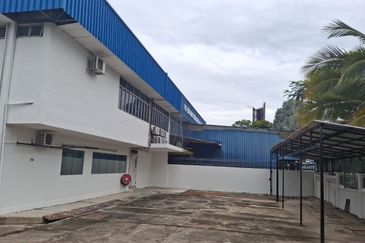
Kawasan Perindustrian Balakong
Balakong, Selangor
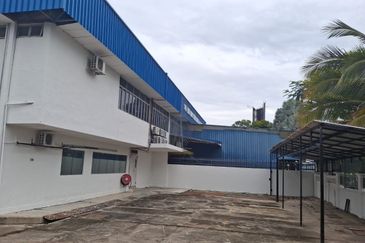
Balakong Jaya Industrial Park
Balakong, Selangor

Parkside Residence @ Setia Federal Hill
KL City, Kuala Lumpur










